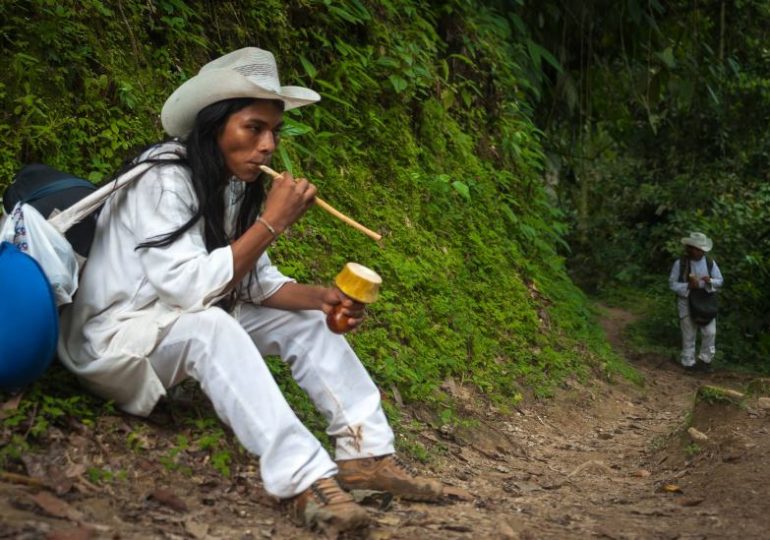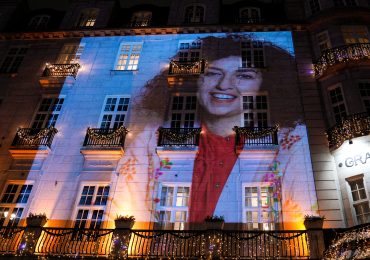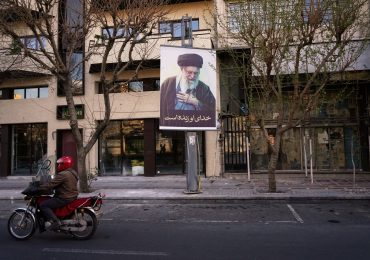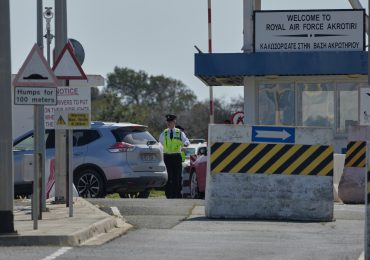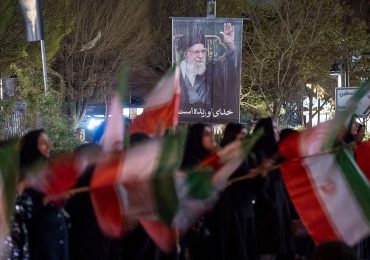AN INDIGENOUS tribe hidden in the depths of Colombia lived off-grid and undiscovered for 2,000 years – until the introduction of tourism.
Now, life has changed drastically for the formerly self-sufficient tribe living in the jungle near the so-called “Lost City” in Sierra Nevada.
Simon Willis, Kagumu AdventuresWiwa elder Gabo Moscote, pictured, spoke to The Sun about changes to the 2,000-year-old tribe[/caption]
AlamyYoung tribe members now enjoy drinking Coke and beer as they’re exposed to Western tourists[/caption]
Simon Willis, Kagumu AdventuresTourists listening to a guide as they visit the indigenous land[/caption]
The area has become one of the most popular tourist attractions in ColombiaGetty
Wiwa elder Gabo Moscote said the introduction of tourism brought trekking camps selling goods for tourists – and a subsequent frenzy for Western products.
Young tribe members have been spotted drinking cans of Coca-Cola – with empty cans found dotted around the jungle.
And they’ve been known to enjoy Western beer, such as Budweiser.
Gabo told The Sun: “They see the tourists do it and so many people want to do the same thing. It doesn’t look good, it makes us look very bad actually, and it doesn’t help at all.”
Before the introduction of tours, the Wiwa community lived off of the land and dedicated their lives to a spiritual connection with nature.
Calling themselves “damanas”, protectors of Mother Nature, the Wiwa rejected the ways of modern life.
Spiritual leaders maintained their connection to nature through meditation, song, and rituals like chewing coca leaves.
But, according to Gabo, the tribe’s traditions are changing.
Many tribal members have started wanting to listen to Western music and reject their traditional dress, he said.
And there have even been cases of tribe members trying to steal tourists’ food.
Simon Willis, a tour guide, said the staggering changes are a result of the tribe having been exposed to an influx of tourists from the West.
He told The Sun: “You’ll see some community members drinking beer, Coca Cola.
“I’m not sure how deeply ingrained it is – but you could say that they have been westernised.”
I want the state and the government support the recovery and the protection for the Sierra
Gabo Moscote
Tours into the Sierra Nevada jungle first began in 1982, six years after archaeologists discovered “Ciudad Perdida” – the Lost City.
The Lost City, a sacred ancient settlement layered with stone circles, was created by the Tayrona people in 800AD – some 650 years before Machu Picchu in Peru.
The Wiwa, direct descendants of the Tayrona, believe the Lost City was once their ancestors’ religious, political, and manufacturing centre.
For centuries, they attempted to shield it from the public, preferring to keep it as their own personal secret instead – until archaeologists uncovered it and opened it to the public.
In the years since, it has become one of the most popular tourist attractions in Colombia.
Camps have been created along an excavated trail cut through the middle of the jungle.
And trekking huts are set up between camps – selling cigarettes, souvenirs, beer, water and traditional tribal wear for tourists.
Simon said the government has tried to set out laws to protect the indigenous communities – such as having a set price for the tours and only allowing a handful of authorised groups to run them.
As part of the set price, the government makes “contributions to maintaining the trail, contributions to the local farming community, and contributions to the local indigenous community”.
Gabo said some of the money does go to paying for medical bills for tribe members.
But the introduction of a monetary system has introduced another set of problems for the tribe.
“As the community has come more into contact with the western world there’s been a bigger need for earning money, especially now some of them want to go to the city,” Simon said.
“They have definitely been impacted by capitalism.
“With capitalism and everything that exists in the western world, just having an extra revenue stream gives you more choices.”
You’ll see some community members drinking beer, Coca Cola
Simon Willis
Yet both Simon and Gabo believe the traditional values of the Wiwa people have remained unchanged.
“Their beliefs in the natural world, the sun, the mountains, the sea, all of the natural elements, are the same,” Simon said.
“Their belief in the male and female role in the natural world remain the same. Their traditions remain the same.”
The Wiwa believe the mountain on which the Lost City lies is “the heart of the world” for them.
To this day, they maintain the belief that when the balance of the mountain breaks, the whole world will break.
As a result, the region is closed every September so the Wiwa can perform a spiritual ceremony to cleanse the energy that tourists have brought it – restoring the natural balance.
Gabo hopes the tribe doesn’t lose its traditional values and beliefs due to the exploding tourist industry – and wants protection for the Wiwa people.
“There are always beliefs and values and schools that might make you forget half of these ancestral traditions,” he said.
“I want the state and the government support the recovery and the protection for the Sierra.
“The most important thing for me is a cosmovision and a culture that want and love a lot and work for the land and the world.”
He pleaded with his community to “open their eyes” – and said a lot more could change if they don’t.
unesco/William DiazThe Wiwa believe the Lost City in Sierra Nevada was their ancestors’ religious centre[/caption]
Simon Willis, Kagumu AdventuresThe Lost City, an ancient settlement layered with stone circles, created in 800AD[/caption]
Simon Willis, Kagumu AdventuresDespite the introduction of tourism, most Wiwa have been attempting to maintain their connection to nature[/caption]
Simon Willis, Kagumu AdventuresThe Poporo is used to stimulate the active ingredients in a coca leaf[/caption]
Leave a comment
